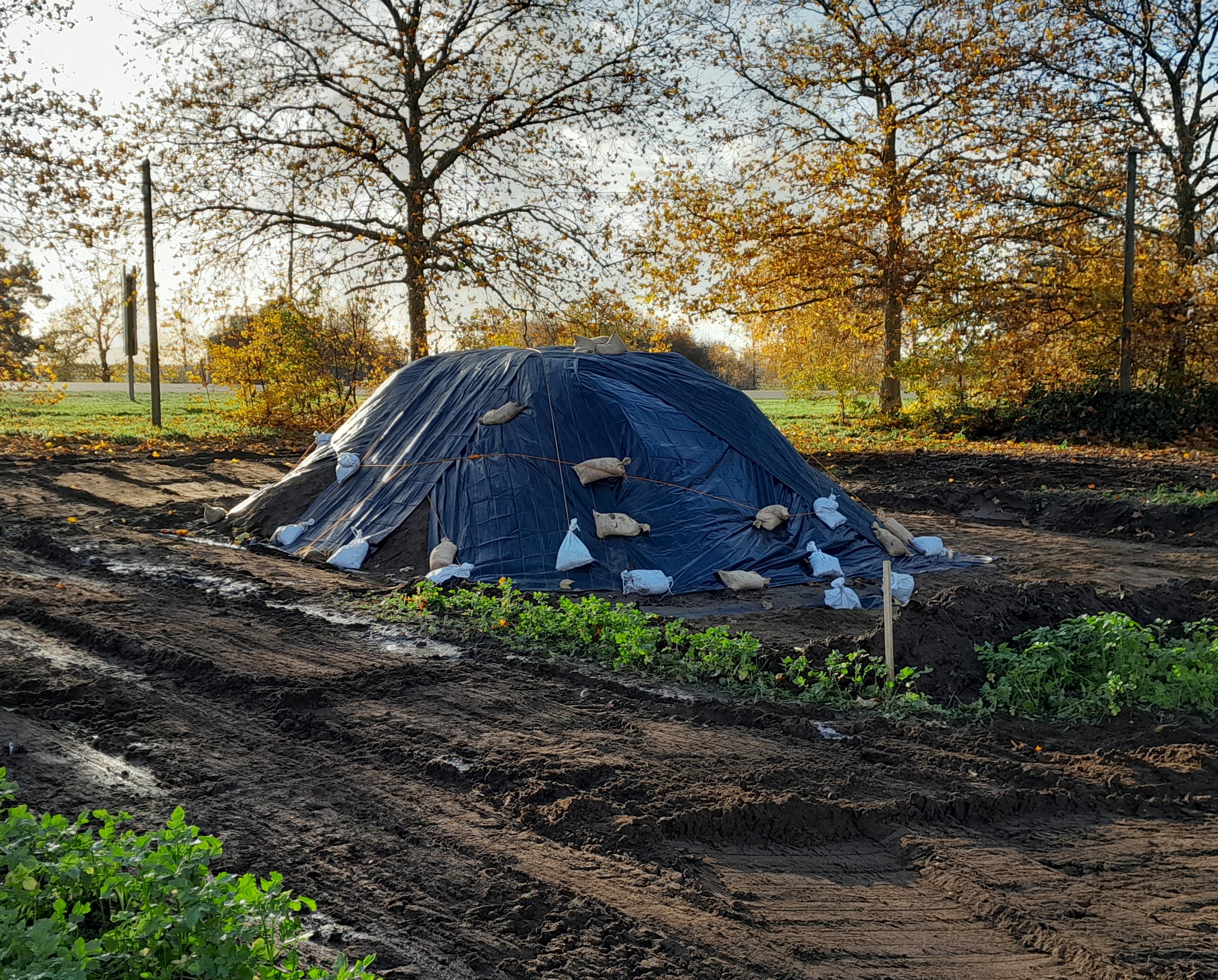PFAS (perfluorinated and polyfluorinated alkyl compounds) currently pose a major challenge for authorities, those responsible for remediation and remediation service providers alike. The very low level of research into this group of substances, which comprises more than 10,000 individual substances, means that the choice of adequate remediation methods is very limited. For this reason, contaminated sites are still usually excavated and the soil material dumped.
In order to counteract the associated waste of soil material, M&P Ingenieurgesellschaft has been involved in the BMBF SME innovation research project "FABEKO" since 2021. This is an on-site process, i.e. a process that can be carried out on site and without further transport routes. This means that CO2 and the soil can be reinstalled on site after remediation, thus conserving soil as a finite resource.
In the process, the soil material is stockpiled and provided with an appropriate water feed system. The stockpile is then first pre-rinsed with water in defined cycles, into which a biopolymer consisting of amino acids, fatty acids and lipids is then added. This environmentally friendly biopolymer promotes the desorption (dissolution) of the long-chain PFAS, which are otherwise very strongly bound in the soil. These are then flushed out of the soil material with the water-biopolymer mixture, where they are collected together with the short-chain PFAS, which are very mobile in water.
From there, the mixture is channelled into a mobile remediation plant in the immediate vicinity of the stockpile, where flotation is first carried out. The water with the remaining PFAS concentration then runs into a chain of electro-adsorption modules, where the remaining PFAS are removed from the water with very high efficiency. These modules consist of activated carbon fleeces, which achieve a particularly high sorption capacity by applying an electrical charge and can be easily regenerated by reversing this charge. The result is a highly concentrated PFAS eluate with a small volume and efficiently purified water, which can be recirculated back to the start of the remediation process.
After various tests, modelling and small-scale trials were carried out in the laboratory, the research project was implemented in a first field trial in Rastatt in summer 2023. The cleaning performance of the heavily PFAS-contaminated soils there averaged 82%. A second field trial, which is currently still being carried out, will build on the findings and potential improvements from the first trial and implement them. This is expected to lead to a further improvement in cleaning performance.
On 28 November 2023, the first results of the project were presented at the symposium "Strategies for soil and groundwater remediation" with a lecture and two additional posters. An evaluation of the second field trial is planned for early 2024 and will ultimately be published in a final report.


